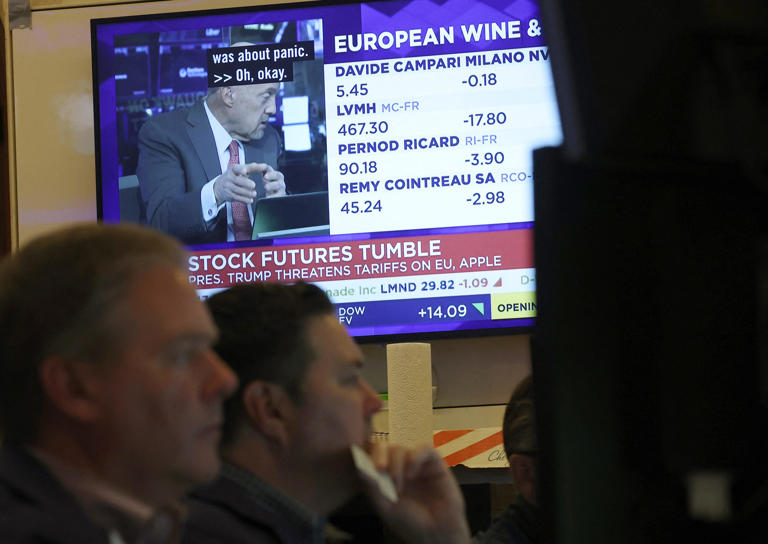US President Donald Trump escalated trade tensions on Friday by proposing a 50% tariff on all goods entering the United States from the European Union.
He also indicated that iPhones not made in the US could face a 25% import tax, a measure that could extend to all smartphones, depending on production origin.
The announcement came shortly before new trade talks between the US and EU. Last month, a 20% tariff had been reduced to 10% to allow room for negotiations, but this pause is set to end on July 8.
Following the meeting, EU officials affirmed their commitment to continued discussions but emphasized their readiness to act in response. A senior EU official stated that cooperation should be based on mutual respect rather than pressure.
Speaking at the White House, Trump said the tariff increase set for June 1 was moving forward and that he was not actively pursuing a new agreement, though he suggested he might reconsider in light of major European investments in the US.
Analysts expressed uncertainty about whether the US administration would follow through on the proposed tariffs. One trade policy expert noted that the move might be aimed at strengthening the US position in talks, though warned it complicates broader negotiations.
Trump’s return to the White House has brought a renewed focus on tariffs as a tool to protect US manufacturing, despite concerns from economists and businesses about rising costs and market instability.
US and European stock markets declined after the announcement. The S&P 500 dropped by 0.7%, while Germany’s DAX and France’s CAC 40 saw losses exceeding 1.5%. Shares in Apple also fell by roughly 3%.
Trump clarified later that his focus wasn’t solely on Apple but on all smartphones not assembled in the United States, suggesting implementation could begin by late June.
The EU remains a top trading partner of the US, exporting over $600 billion in goods last year. Trump has cited trade imbalances and policies around autos and agriculture as areas of concern.
Last month, the US imposed a 20% tariff on EU goods under the so-called Liberation Day initiative, prompting extensive negotiations. While some nations have opted for compromise, the EU has taken a firmer stance and indicated it will respond if necessary.
On Friday, Trump described the EU as a difficult negotiating partner. A senior US economic official said the pressure was intended to prompt faster progress.
European leaders responded with calls for restraint. Ireland’s leader urged continued dialogue, warning against actions that could harm both sides. France and Germany echoed support for negotiations and stressed the need for a de-escalation path.
Despite objections from industry and market experts, the administration has continued to use tariffs as leverage. One analyst remarked that expecting large-scale US iPhone production was unrealistic, but predicted Apple would continue adapting to policy shifts.
Trump recently met with Apple’s CEO after expressing dissatisfaction over the company’s overseas production plans. Apple has announced a shift of some manufacturing from China to countries like India and Vietnam, rather than the US.
Earlier this month, Trump acknowledged concerns with Apple’s strategy and reportedly told the company he preferred domestic production over expansion abroad.







